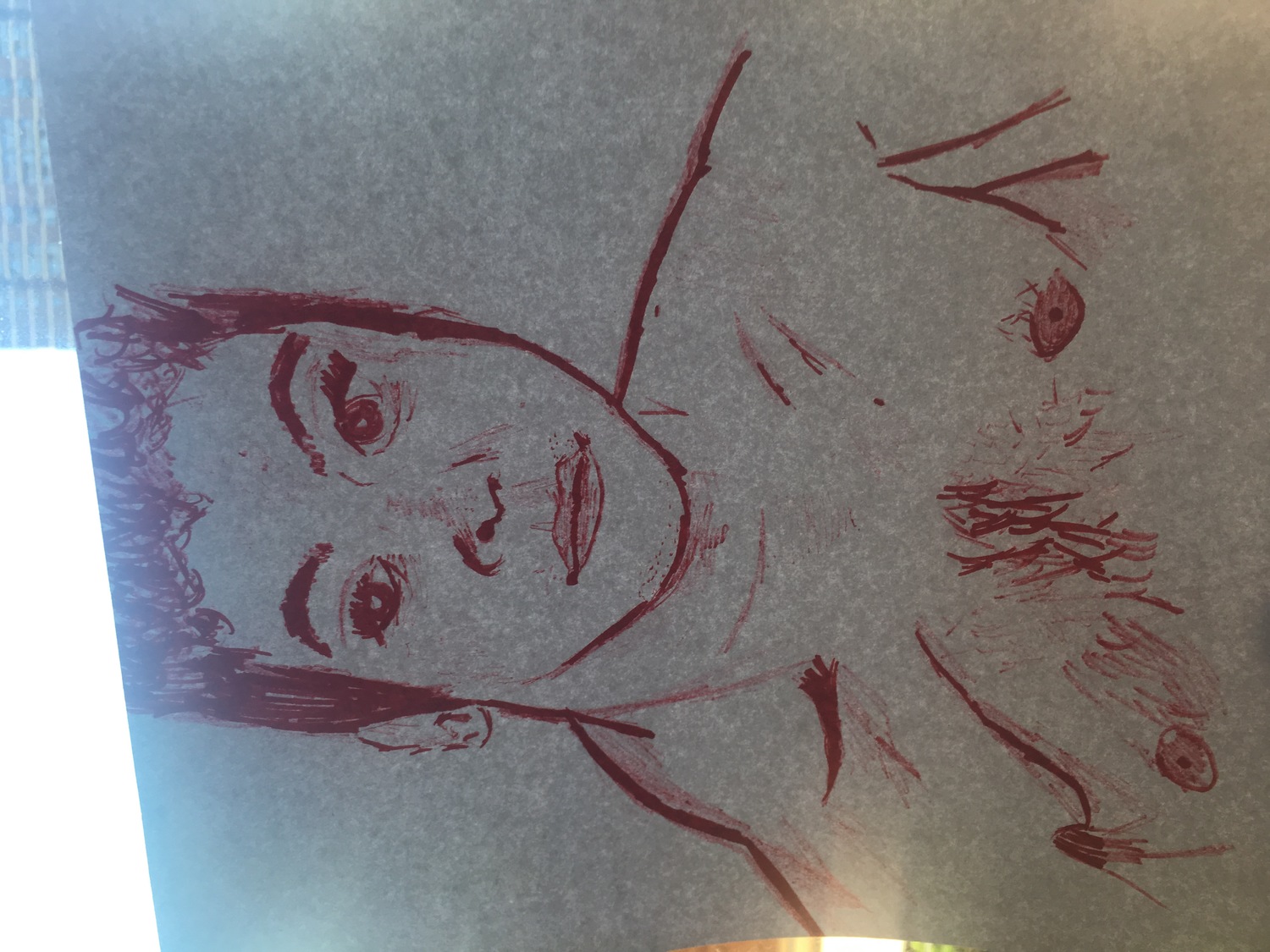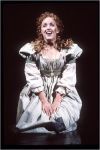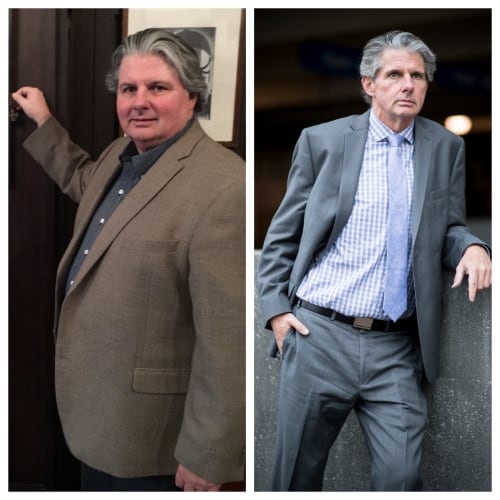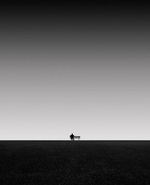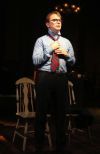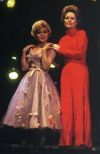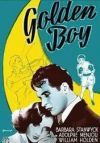Broadway in the 50s, 60s, and 70s
#1Broadway in the 50s, 60s, and 70s
Posted: 6/5/07 at 3:15pm
I'm writing an paper about broadway in the 50, 60s, and 70s. I need to include what was going on in America (politically and culturally), and how this was reflected on broadway. I also have to write about how broadway transformed during this time period. What are major shows ideas, and events that I should include?
#2re: Broadway in the 50s, 60s, and 70s
Posted: 6/5/07 at 3:18pm
Jesus Christ Superstar
Had HUGE Culteral Inpacks
#2re: Broadway in the 50s, 60s, and 70s
Posted: 6/5/07 at 3:21pmVietnam...Hair
#3re: Broadway in the 50s, 60s, and 70s
Posted: 6/5/07 at 3:25pmUh, I'm not sure how it impacted culturally, but you need to include A Chorus Line if you're talking about how Broadway changed.
#4re: Broadway in the 50s, 60s, and 70s
Posted: 6/5/07 at 3:30pm
WEST SIDE STORY -- a reflection of the times in more ways than one. Just that show alone covers everything from social, race, economic, et al. Plus...there's that thing about the mixture of storytelling and dance.

#5re: Broadway in the 50s, 60s, and 70s
Posted: 6/5/07 at 3:39pmHaven't watched it in a while, but take a peek at disc 2 of Broadway The American Musical. There is commentary about what was going on in the world during the years covered on the discs. The only thing missing on this disc were the number of African American shows on the boards. They did not even cover The Wiz.
#6re: Broadway in the 50s, 60s, and 70s
Posted: 6/5/07 at 4:22pmI think "Bye Bye Birdie" was a major cultural musical. It reflected a lot about American Life in the 50s.
#7re: Broadway in the 50s, 60s, and 70s
Posted: 6/5/07 at 4:24pm
"I'm writing an paper about broadway in the 50, 60s, and 70s. I need to include what was going on in America (politically and culturally), and how this was reflected on broadway. I also have to write about how broadway transformed during this time period. What are major shows ideas, and events that I should include?"
This seems like an awfully wide range. You could easily write a paper on each one of the three, things changed so drastically.
#8re: Broadway in the 50s, 60s, and 70s
Posted: 6/5/07 at 4:25pm
>Culteral Inpacks<
Ouch. My eyes!
#9re: Broadway in the 50s, 60s, and 70s
Posted: 6/5/07 at 4:44pm
Broadway musicals in the 1950's provided much of the popular music that was played on the radio and jukeboxes. For example, "Hey There" from THE PAJAMA GAME(1954) became a big hit nationally. The MY FAIR LADY(1956) album was #1 on the charts for a long time. Domestically, the US was at peace after the Korean War at the begining of the decade. There was a brassy, self confident Broadway sound that permeated the scores of most shows. See the wonderfully brassy GYPSY(1959) at the City Center this July to experience perhaps the best musical of the 20th century. It's song "Everything's Coming Up Roses" was one of the last Broadway songs to hit the airwaves.
In the 1960's the rise of Rock & Roll replaced Broadway songs on the radio and jukeboxes. The beginning of the Vietnam War in the mid 1960's changed the atmosphere of Broadway to a degree. The one show that epitomized this was HAIR(1968?), the hippie musical. But the longest running musical of the 1960's was still a "traditional" musical: FIDDLER ON THE ROOF(1964) which ran for 3,242 performances. FIDDLER's wistful ending was in touch with the war weary American public toward the end of the decade.
COMPANY(1970) was a hit for Stephen Sondheim. It explores the relationships of married couples to their favorite bachelor. You should see it if you haven't already. It will give you a glimpse of the culture of 1970. You will need others to talk about the dates for the Rock Musical success JESUS CHRIST SUPERSTAR and the disco sounds of GREASE. A CHORUS LINE was the longest running musical of the 1970's into the 1980's. The long running musicals from England didn't start until the 1980's.
You will have to read up on shows from authors such as Ethan Mordden, Steven Suskin, and Ken Mandelbaum. If you don't have access to the video of "Broadway:The American Musical" you should read the book; its authors are Michael Kantor and Laurence Maslon. If you live in NYC you should visit the Library of Performing Arts at Lincoln Center. Good luck with your assignment.
#10re: Broadway in the 50s, 60s, and 70s
Posted: 6/5/07 at 4:47pm
One book you will find helpful is Ken Mandalbaum's masterpiece, Not Since Carrie. You will also want to look at Ethan Mordden's books on the various decades of the musical theatre and these, too, will offer insights. The Burns Mantle Yearbooks, The Best Plays of... offer comments in their opening chapters and get more consise as the decades wear on. Good luck.
#11re: Broadway in the 50s, 60s, and 70s
Posted: 6/5/07 at 4:49pm"Inherit the Wind" and "The Crucible" were about McCarthyism.
BJC899
Broadway Star Joined: 7/20/04
#12re: Broadway in the 50s, 60s, and 70s
Posted: 6/5/07 at 4:49pm
A Chorus Line is definitely a thing to look into...
I wrote a 7 page paper on the show (research style) and how it was a reflection of society and the influence it had. I practically lived on the 3rd floor at the Lincoln Center Library.
Your topic right now is VERY broad. My original paper started off using 3 different decades (1920s, 1960's, 2000), and found that I didn't have enough time for time limit. I then narrowed it down to a few shows, and eventually down to A Chorus Line.
#13re: Broadway in the 50s, 60s, and 70s
Posted: 6/5/07 at 5:12pm
The city, especially the theatre district, was a complete dump in the late 60s and early 70s, which is why, with the exceptions of the Sondheim shows and a few other rare exceptions, there were not many flowering banner years like in the 50s and 60s. A Chorus Line slightly brought us out of the lull, but the area got no cleaner until the very late 80s into the 90s.
There's a good point.
JBSinger
Broadway Star Joined: 11/12/04
#14re: Broadway in the 50s, 60s, and 70s
Posted: 6/6/07 at 1:40pm
The Ethan Mordenn books are a must for this paper. However, I think you might benefit by narrowing your focus a bit. One of the over-riding themes with the "demise" of Broadway was the advent of Rock music taking over the Popular consciousness. Where at one point, the theatre was the generating force for Top 40 hits, once the Rock N Roll came into the mix, theatre songs (and thus Bway) started its never-ending decline.
The seminal musicals of the decades were definitely products of and/or reactions to their times. Since entire books have been written about each decade, unless you are supposed to do a general overview in this paper, you probably should narrow your timeframe. Good luck.
Timmer
Broadway Star Joined: 2/21/06
#15re: Broadway in the 50s, 60s, and 70s
Posted: 6/6/07 at 2:33pmIf you can find it, there was an article from the time that "Company" was being revived by Roundabout ('94?) called "The Great Show That Ruined Broadway" about how "Company" totally altered the Broadway musical.
Broadway Star Joined: 12/31/69
#16re: Broadway in the 50s, 60s, and 70s
Posted: 6/6/07 at 5:31pm
Gypsy nailed the major ones (about pop music on Broadway in the 60s Promises Promises makes a nice contrast to the more different Hair). However as a huge disco fan I have to say there's nothign even sligthly disco about any of Grease--the Broadway/off-Broadway score. Chorus Line has some minor elements though!
![]()
E
#17re: Broadway in the 50s, 60s, and 70s
Posted: 6/7/07 at 3:27pmI wish I could narrow my timeframe, but my teacher wants me to cover the change over three decades. So, I guess this has to be a very long research paper.
Gothampc
Broadway Legend Joined: 5/20/03
#18re: Broadway in the 50s, 60s, and 70s
Posted: 6/7/07 at 3:45pm
In the 1970s, Broadway started making tv commercials. These were some of the best commercials ever made and now they serve as a historical record of the show. You might want to include a paragraph about the Broadway commercials.
Commercials were made for (not a complete list)
A Chorus Line
Pippin (we'll show you two minutes, to see the other 98 minutes call Telecharge)
Evita (Patti LuPone & Mandy Patinkin)
Grease (every night at the Royale Theater, the 50s come to life)
Eubie
Dancin'
One Mo' Time (at the Village Gate)
#19re: Broadway in the 50s, 60s, and 70s
Posted: 6/7/07 at 3:48pm
The Wiz also had a TV commercial which helped it to become a big hit.
Didn't New York also have a commercial (I Love New York) with various Broadway shows on it. I remember seeing it on Broadway: The American Musical.
Gothampc
Broadway Legend Joined: 5/20/03
#20re: Broadway in the 50s, 60s, and 70s
Posted: 6/7/07 at 3:52pm
"Didn't New York also have a commercial (I Love New York) with various Broadway shows on it."
Yes they did. They made one long commercial (I think it was 2 minutes) then they broke it down and showed 30 second spots. It had several different Broadway casts singing "I Love New York". I definitely remember the Evita cast was in it. And so was the Dracula cast because at the end Frank Langella said "I love New York, especially in the evening".
#21re: Broadway in the 50s, 60s, and 70s
Posted: 6/7/07 at 4:12pm^They have part of that commerical on the "Broadway - The American Musical" documentary. They had a spot with Sweeney Todd as well.
daredevil
Featured Actor Joined: 8/17/05
#22re: Broadway in the 50s, 60s, and 70s
Posted: 6/7/07 at 5:20pm
Many of the playwrights, directors and actors from the fifties and sixties were involved with the McCarthy blacklist (either its victims or those who gave information to the House UnAmerican Activities Committee) and this was reflected in certain plays that were produced. Arthur Miller's The Crucible and A View from the Bridge, both revolved around "naming names".Two actors who had major successes in the early sixties, Zero Mostel and Morris Carnovsky (King Lear at Stratford Connecticut) were blacklisted actors, so there was a kind of poetic justice in their success. Culturally, Broadway was perceived as the center of the American Theater--there was very little regional theater (maybe one or two by 1960) so all work originated for Broadway.
With the success of West Side Story, i think writers felt that it was possible for musicals to tackle any serious problem. I can think of three musicals of the early sixties (none of them were successful) that did this: Kwamina, which had at its center an interracial romance, I Can Get it For You Wholesale and What Makes Sammy Run, both of which had as their main characters ruthless "get me to the top at any cost" heroes.
The power of Broadway fell apart in the mid-sixties; if you went to a see a Broadway play around 67, 68, it was hard to find anyone in the audience under 40. Theaters remained empty for long periods of time; a show like Company ran for almost two years, but I don't think it ever sold out---I think the theater owners just let it remain there. At the same time, regional theaters began to blossom all around the country--and some saw themselves as a place for serious work that could not be done on Broadway.
daredevil
Featured Actor Joined: 8/17/05
#23re: Broadway in the 50s, 60s, and 70s
Posted: 6/7/07 at 6:04pm
Other reasons for the decline of Broadway post 64.
The two men who dominated the two forms of theater in the fifties and sixties, Jerome Robbins (musicals) and Elia Kazan (dramas) simply stopped directing for Broadway after 64. Kazan decided he wanted to write, and Robbins moved exclusively into ballet choreography. Both men had tremendous clout--could have probably gotten anything on to a Broadway stage that they wanted to, so their deliberate stopping short (at relatively young ages) left a terrrific void.
The death of Oscar Hammerstein in 1960 left Richard Rogers without a permanent partner. Also, Frederick Leowe's decision to "retire" from Broadway after Camelot basically marked the end of his prolific collaboration with Alan Jay Lerner. Their absense also created a void.
#24re: Broadway in the 50s, 60s, and 70s
Posted: 6/8/07 at 12:11am
the 60's
President Kennedy and upward mobility of the middle class inspired
Camelot
and a Kennedy, bein a youngin for president probably inspired How to succeed in Business without really trying.--How to Succeed really captured the Kennedy Years-
about making it to the top in about 2 weeks. An American where anything can happen.
Kennedy was assasinated and the musicals turned a bit more serious.
Cabaret was inspired by Hal Prince's reaction to white supremicists in Illisnois
The Civil Rights Movment also inspired:
Fiddler on the Roof ( was about Russian pograms and Racism)
Purlie
The Viet Nam War inspired
Hair (which made many book musicals seem archaic)
the 50's
that was Eisenhower, The Cold War, and McCarthyism
Eisenhower and Pearl Mesta inspired Call Me madam
Li'l Abner spoofed politics of the 50's
South Pacific (that might have been 40's) was inspired by racism and ww 2
Musicals tended to be safe as the 50's tried not to offend anyone:
and you have Plain and Fancy, Pajama Game, Damn Yankees.
The 70's. That's harder. Kind of Transition from Rock to Cynacism.
We had (rockwise)
JC Superstar
and
Two Gentelman of Verona.
Then we went into the cynical musicals like
Company, Follies, A Little Night Music.
It was a transition phase from Hair Inspired Musicals to Grown Up themes.
Guess the Camelot generation was growing up, and Sondheim was in his prime to add cynicism to the mix.
Those are my thoughts. Hope that helps.


